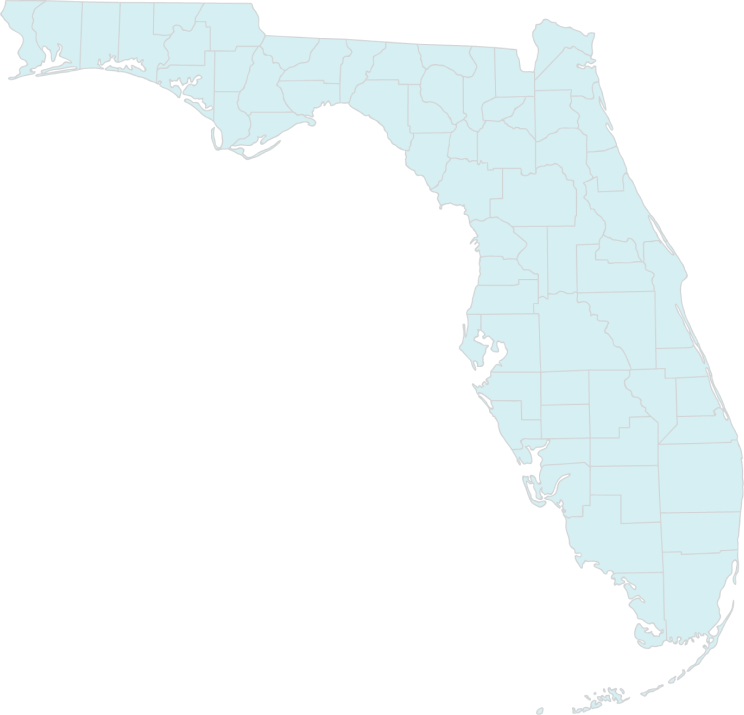
Accidents on the road are a part of life we all wish to avoid. But when they happen, it's not just about dealing with the immediate worries about health and safety. In Florida, understanding car insurance laws is also crucial. At The Nurse Lawyer, P.A., we're here to help you understand these laws so you can handle these situations with confidence.
Why Knowing Florida's Car Insurance Laws is Important
Understanding the Basics
Florida's car insurance laws are unique. They play a big role in how injury claims and compensation are handled after a car accident. Knowing these laws helps you be prepared and get the right compensation without extra trouble.
- How Claims Are Handled: Florida uses a special kind of system for car insurance. Drivers must have Personal Injury Protection (PIP) insurance. This covers their own injuries, no matter who caused the accident. But there are also chances to make claims against drivers who are at fault under certain conditions.
- Quick Help with PIP: Florida's PIP insurance makes sure you get help covering medical costs quickly, no matter who caused the accident. This system is designed to provide fast financial help for medical needs.
- When You Can Sue: In Florida, you can sue the driver who caused the accident if the injuries are very serious, permanent, or if your medical costs are more than what PIP covers, usually around $10,000.
- Choosing the Right Insurance: Knowing the details of Florida's insurance laws, like PIP and liability insurance, helps you make smart choices when picking your insurance.
- Why PIP is a Must: Florida law says drivers must have PIP coverage. This pays for medical costs and sometimes for lost wages and other damages, no matter who is at fault.
- Simpler Process for Small Accidents: For minor accidents, the PIP system makes things simpler and often avoids the need for legal steps. But for more serious cases, knowing the legal rules is very important.
- Making Smart Choices After an Accident: Understanding your rights and what you should do after an accident in Florida helps you make good decisions. This includes getting medical help right away and knowing when you can take legal action.
- Encouraging Safe Driving: Knowing how accidents can affect you financially, even with PIP, encourages safer driving.
- Planning for Enough Protection: Understanding these laws helps you decide how much extra coverage, like bodily injury liability or uninsured motorist coverage, you might need.
What is PIP Insurance in Florida?
In Florida, Personal Injury Protection (PIP) insurance is a must-have. It covers immediate medical costs and some non-medical costs like lost wages, no matter who is at fault. This system is meant to cut down on legal cases and make sure medical bills are paid quickly.
The Good and Not-So-Good of Florida's PIP System
The Good Parts
- Quick Help: PIP makes sure medical costs are paid quickly, offering fast relief.
- Less Legal Hassle: Fewer court cases mean fewer legal costs and faster solutions.
- Peace of Mind: Knowing you're covered, no matter who's at fault, is reassuring.
The Not-So-Good Parts
- Limited Right to Sue: You can only sue the at-fault driver in cases of very serious or permanent injuries, or when costs go beyond what PIP covers.
- Limits on Coverage: PIP has a cap on how much it pays. Costs above this cap need other ways to be paid, like suing the at-fault driver.
- Chance of Fraud: Like any system, PIP can be misused, leading to higher insurance costs for everyone.
How to File a PIP Claim in Florida
Filing a PIP claim in Florida involves several steps:
- Get Medical Help Right Away: Your health comes first. Even if injuries seem small, see a doctor immediately. This is also important for your claim, as insurance companies may doubt injuries reported much later.
- Tell Your Insurance Company: Inform your insurer about the accident as soon as you can. Waiting too long might make your claim harder or even risk your chance of getting paid. Be honest, but don't admit fault or guess about what caused the accident.
- Gather Information: Collect all important details from the accident scene. This includes the names and contact information of everyone involved, statements from witnesses, photos of the scene, damage to vehicles, and any visible injuries. Get a copy of the police report if there is one.
- Keep Track of All Medical Visits and Costs: Record all doctor visits, treatments, medicines, and any costs related to the accident. This detailed record helps support your claim and makes sure you get paid for all your expenses.
- Fill Out Claim Forms Carefully: Your insurance company will give you forms to fill out. Do this accurately and fully. If you're not sure about something, it's better to ask than guess.
- Follow Medical Advice: Keep up with all treatments your doctor suggests. Stopping too soon might make the insurance company think you're not really hurt or your injuries weren't serious.
- Check on Your Claim: Stay in touch with your insurance company about your claim. If things are slow or there are problems, find out why and make sure they have all they need from you.
- Think About Getting a Lawyer: If your injuries are big or you're having trouble with your claim, you might want a lawyer. They can help you through the process, talk for you, and protect your rights.
- Look Over Any Settlement Offers: If your insurance company offers a settlement, check it carefully. Make sure it covers all your medical costs, lost wages, and other damages. If it seems too low, you can talk more about it or get legal advice.
- Keep All Records: Save all emails or papers from your insurance company. This is important if there are any disagreements or problems later.
Contact an Experienced Car Accident Attorney at The Nurse Lawyer, P.A. for a Free Consultation About Your Case Today
Whether you're dealing with the complexities of PIP claims, seeking compensation for injuries, or simply needing guidance through Florida's legal maze post-accident, The Nurse Lawyer, P.A. is here to help. Our goal is to shoulder your legal burdens, allowing you to focus on what truly matters—your recovery and well-being.
Don't navigate this challenging time alone. Reach out to The Nurse Lawyer, P.A. for a free consultation and experience the difference compassionate, expert legal care can make. Together, we'll turn your legal challenges into solutions.




